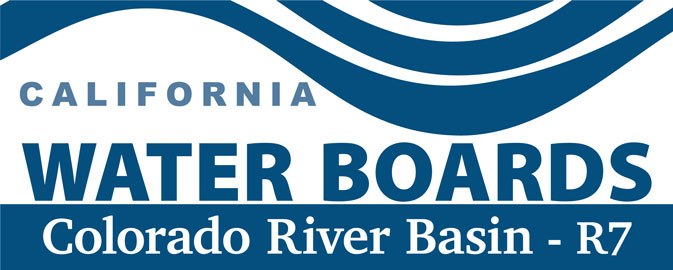Nonpoint Source Program (NPS)
What is Nonpoint Source Pollution?
Nonpoint source (NPS) pollution, also known as polluted runoff, is the leading cause of water quality impairments in California. Nonpoint sources are major contributors of pollution to impacted streams, lakes, wetlands, estuaries, marine waters, harbors, bays, and groundwater basins. Unlike pollution from distinct, identifiable sources, NPS pollution comes from many diffuse sources. It is caused by rainfall, snowmelt, or irrigation water that moves over and through the ground. As the runoff moves, it picks up and carries away natural and human-made pollutants and deposits them into lakes, rivers, wetlands, groundwater, and other inland and coastal waters. Common sources of NPS pollution include runoff from agricultural activities, including feedlots, grazing, and dairies; runoff from urban areas; and erosion from timber harvesting, construction sites, and roads.
Some of the primary NPS challenges facing the Colorado River Basin Region include international pollution from Mexico, the Salton Sea, pollution from agricultural runoff, and groundwater pollution. As a result, dischargers in Coachella, Imperial, and Palo Verde Valleys will continue to be the focus of NPS management through the implementation of agricultural general orders of Waste Discharge Requirements, TMDLs, and the State’s Onsite Systems Policy.
Nonpoint Source Program
Nonpoint Source (NPS) pollution does not originate from regulated point sources and comes from many diffuse sources. The federal Clean Water Act (CWA) requires States to develop a program to protect the quality of water resources from the adverse effects of NPS water pollution. The NPS Program aims to minimize NPS pollution from land use activities in agriculture, urban development, forestry, recreational boating and marinas, hydromodification, and wetlands. The NPS Program’s goal is to protect water quality and maintain beneficial uses.
The Colorado River Basin Region NPS Program is guided by California's 2020-2025 Nonpoint Source Program Implementation Plan and Policy for the Implementation and Enforcement of the Nonpoint Source Pollution Control Program. Staff resources are focused on implementing Irrigated Lands Regulatory Program (ILRP) and Total Maximum Daily Load (TMDL).
Nonpoint Source Grant Program
The State Water Resources Control Board Nonpoint Source (NPS) Program administers grant money it receives from the United States Environmental Protection Agency through Section 319(h) of the Federal Clean Water Act. These grant funds can be used to implement projects or programs that will help to reduce NPS pollution. Projects that qualify for funding must be conducted within the state's NPS priority watersheds. Project proposals that address Total Maximum Daily Load (TMDL) implementation and those that address problems in impaired waters are favored in the selection process. There is also a focus on implementing management activities that lead to reduction and/or prevention of pollutants that threaten or impair surface and ground waters.
Solicitation typically begins each year in September and ends in the middle of December. Grant Guidelines are posted on the link below. It is highly recommended that groups interested in applying contact the Regional Water Boards grant coordinator prior to submitting an NPS 319(h) grant application.
For additional details on NPS 319(h) Grants available through the State Water Resources Control Board, please visit the link below:
Related Links
- The California Grants Portal is your one-stop destination to find all grants and loans offered on a competitive or first-come basis by California state agencies. You can search by applicant type, grant category, granting agency, and more.
- Nonpoint Source Control Program
The State Water Resources Control Board Website is dedicated to disseminating information about the Nonpoint Source Control Program. - Vegetation Treatment General Order to ensure vegetation treatments to reduce wildfire risk are conducted in a way that is protective of water quality.
- Nonpoint Source Grant Program These grant funds can be used to implement projects or programs that will help to reduce NPS pollution.
- The NPS Encyclopedia is a free online reference guide designed to facilitate a basic understanding of nonpoint source (NPS) pollution control issues.
Questions or Comments about NPS in the Colorado River Basin Region?
Please email Emma McCorkle or phone at (760) 340-4521.
For additional Non-Point Source (NPS) information visit the State Water Board Website.



